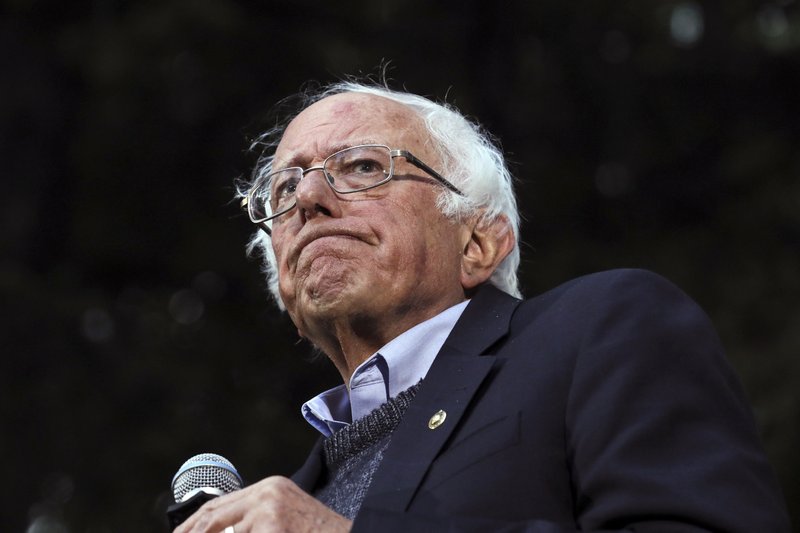AP: Bernie Sanders has heart procedure

WASHINGTON (Associated Press) — Bernie Sanders' campaign said Wednesday that the Democratic presidential candidate had a heart procedure for a blocked artery and was canceling events and appearances "until further notice."
The 78-year-old Sanders experienced chest discomfort during an event Tuesday and sought medical evaluation, according to a campaign statement. It said two stents were "successfully inserted" and that Sanders "is conversing and in good spirits."
His campaign manager, Faiz Shakir, was on a telephone call with supporters Tuesday night but didn't mention any health concerns about the candidate. Shakir said the "state of the campaign is strong" and he played up Sanders' strong fundraising total for the third quarter.
Sanders was among 10 Democratic candidates scheduled to appear later Wednesday at a forum on gun control in Las Vegas. He recently canceled some appearances in South Carolina because he lost his voice. The campaign said at the time he felt fine.
The Democratic field's oldest candidate, Sanders sometimes jokingly refers to his age at town halls and other events, especially when interacting with younger participants. His aides have tried to project him as a candidate with energy levels that surpassed his 2016 presidential campaign.
He is one of three candidates over age 70 in the Democratic primary, which has spurred debate over whether the party should rally behind a new generation of political leaders. His health scare is certain to revive that discussion in the weeks before the next presidential debate this month.
Sanders' 2016 campaign nearly overtook Hillary Clinton for the party's nomination. He is a top contender in the 2020 primary, and announced Tuesday that he raised more than $25 million over the past three months. But he is facing stiff competition from former Vice President Joe Biden and Massachusetts Sen. Elizabeth Warren, who have overtaken him in many polls.
Sanders is not the first candidate to face health issues in recent years while seeking the presidency. Clinton had to take time off from campaigning in 2016 after being treated for pneumonia.
In 2000, former New Jersey Sen. Bill Bradley, the leading Democratic challenger to then-Vice President Al Gore, had to cut short a campaign swing for treatment of atrial fibrillation, an irregular heartbeat that is treatable but potentially serious. Bradley later resumed his campaign.
In Sanders' case, when doctors insert a stent, they first thread a tiny balloon inside a blocked artery to widen it. The stent is a small wire mesh tube that then is propped inside to keep the artery open. The number of stents needed depends on the size of the clog.
The treatment can immediately improve symptoms such as chest pain or shortness of breath. The stents are threaded into place through blood vessels in the groin or wrist, requiring only a tiny incision. Most are coated with medication to prevent the targeted artery from reclosing. That is still a risk, requiring monitoring, and patients also often are prescribed blood thinners to prevent clots from forming in the stents.
A letter released by Sanders' physician in 2016 cited a history of mildly elevated cholesterol but no heart disease.
If you have questions or comments about this story, please email [email protected].





